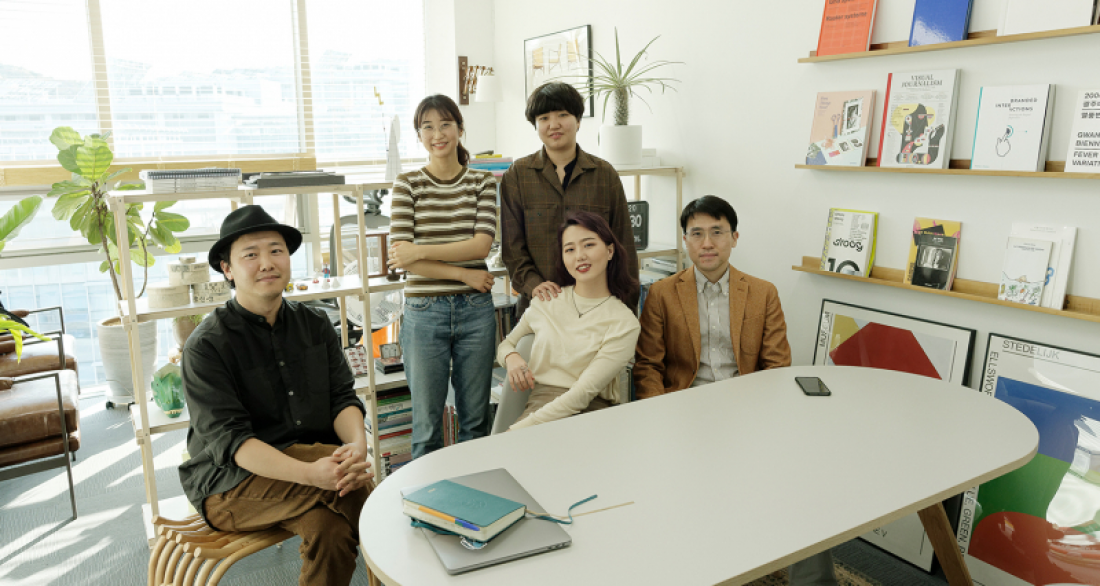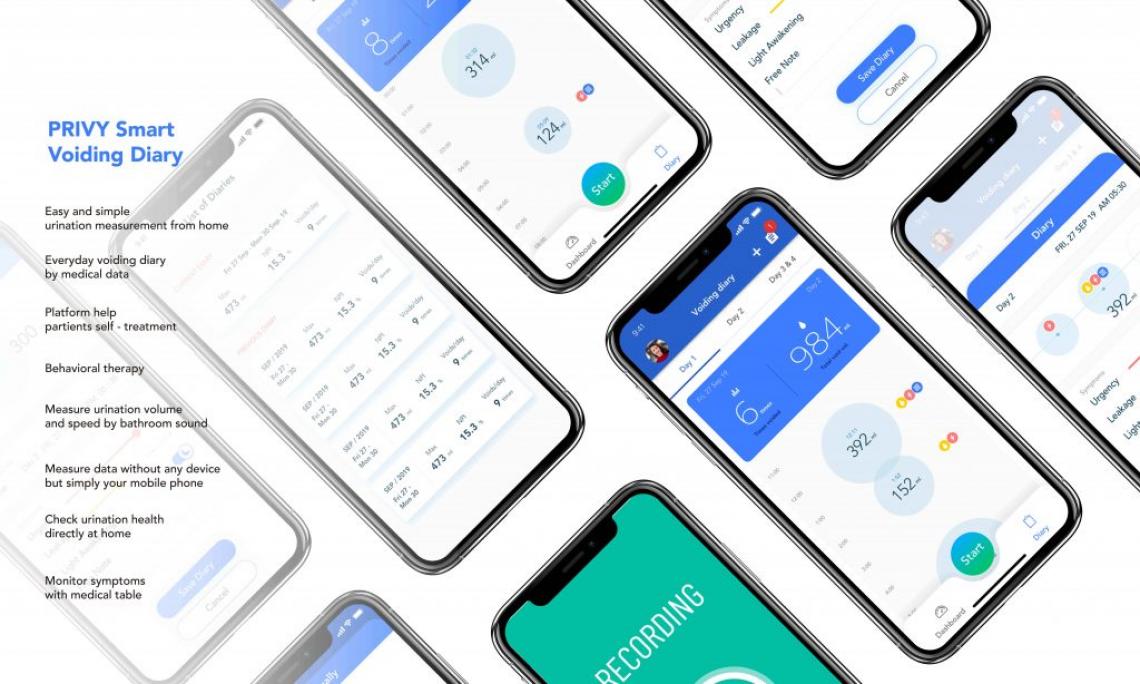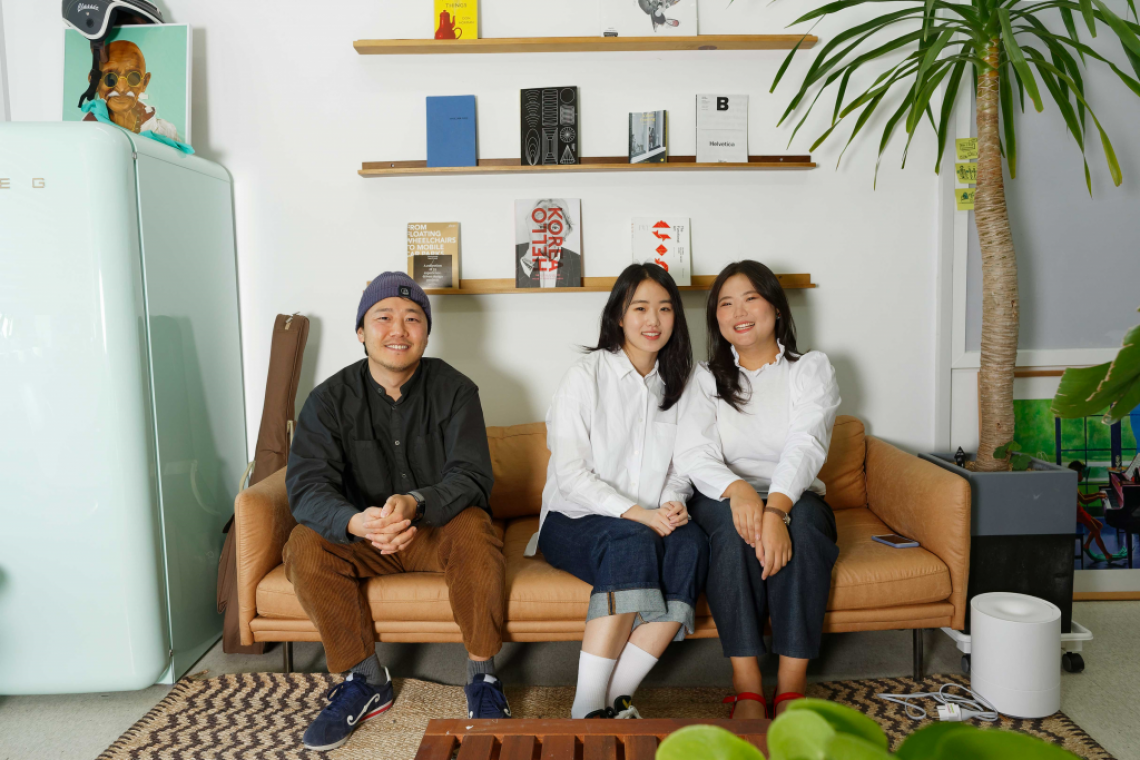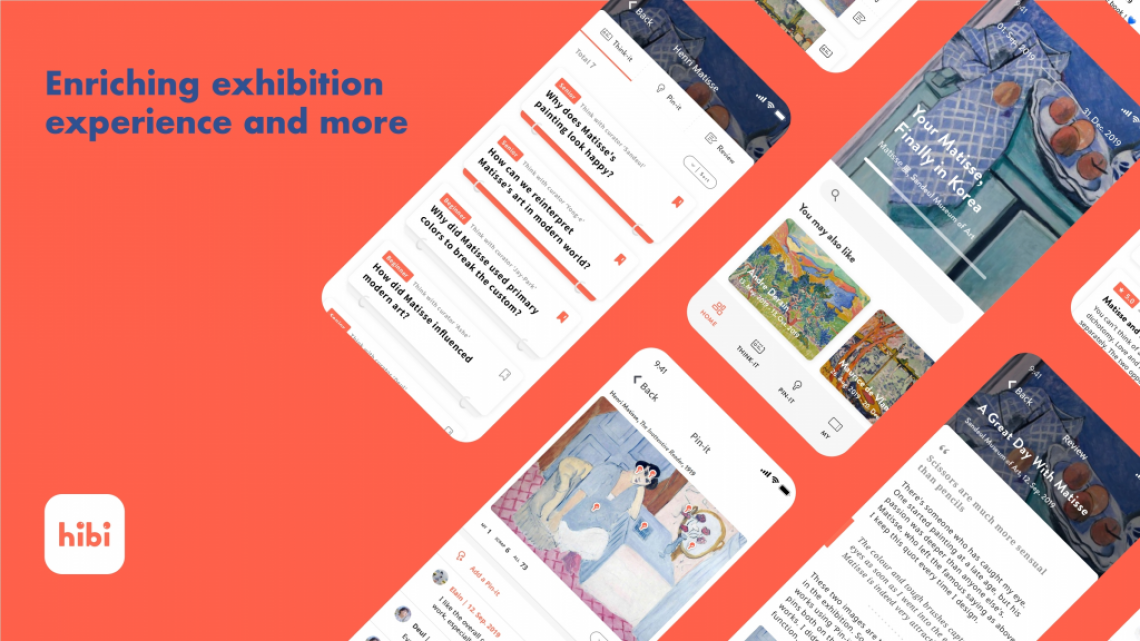A design team, led by Professor Hwang Kim and Professor Dooyoung Jung has been honored with iF Design Awards in the communication category.
From everyday communication to work and leisure activities, smartphones have become an indispensable part of modern society. The ubiquitous role of smartphones seems likely to increase, as people become ever more dependent on mobile devices. The School of Design and Human Engineering at UNIST has recently unveiled new design projects that would bring smart world on your hands.
The designs of the digital voiding diary app, known as PRIVY and the app-aided exhibition service, entitled HIBI have recently been recognized for their design excellence at the iF DESIGN AWARD 2020. These were acknowledged in the communication design category for providing compelling online experiences and conveniences in both areas of healthcare and exhibition services, respectively.
■ Accelerating the Journey to Smart Healthcare with Smart Voiding Diary!
PRIVY is a diagnostic mobile application that assists people in quickly monitoring their urinary health via smartphones, without the need for urine specimen cups or test strips.
The design has been jointly proposed by the SSID Design Lab and the Healthcare Lab at UNIST. The two groups consist of Professor Hwang Kim (Graduate School of Creative Design Engineering), Professor Dooyoung Jung (School of Design and Human Engineering), Dokyung Kim, Jiyoung Lee, and Hyojeong Jin. The team utilized the AI-enabled urinary monitoring technology from Soundable Health Inc. for designing their diagnostic mobile application, as well as providing UX and UI dashboard designs for medical professionals.
PRIVY is a diagnostic mobile application that assists people in quickly monitoring their urinary health via smartphones.
A voiding diary is a daily record of the patient’s bladder activity, which records the frequency and volume of voids, type of fluid intake, and other information, such as urgency, pain, incontinence episodes, and pad usage. Voiding diaries are helpful as a pretherapy diagnostic tool, yet this can cause considerable inconvenience to doctors as they have to make diagnoses and treatment plans based on the limited data that are often not representative.
Soundable Health Inc. is expected to drastically improve the existing voiding diary system with its AI-enabled technology that helps people monitor their urinary health by recording the sound of urine flow on a smartphones. Unlike voiding diaries, PRIVY provides patients and health care providers with clinical-grade readings at the convenience of patients’ homes using only smartphones. Besides, its intuitive design allows patients to easily track and monitor their urine symptoms that often lead to chronic disorders. Through this patients can better understand their voiding patterns, thus assisting in an early diagnosis.
A design patent application for PRIVY has been filed and it can be downloaded through both the Google Play Store and iPhone App Store. It currently has nearly 2,000 active users, including over at least between 100 and 200 doctors.
■ Enriching Exhibition Experience and More!
Hibi is a mobile app service with the aim of visitor experience in exhibitions or museums. This has been designed by the SSID Design Lab at UNIST, which consists of Professor Hwang Kim (Graduate School of Creative Design Engineering), Hayoung Lee, and Sandeul Lee. The design started with students’ concerns about how to enjoy art exhibitions more broadly and deeply. This idea, which started from a design project from product fesign class, took a more concrete form through expert interviews.
“Exhibitions and museums historically have served as a mirror of the times, yet their roles in today’s society have changed due to the impact of new media technologies,” says Hayoung Lee who partook in the project. “Thus, Hibi is the result of exploring how art exhibitions in today’s society could have cultural significance.”
Professor Hwang Kim (left) and his design team that carried out the design work for Hibi.
Hibi provides a set of digital cards handpicked by curators to offer visitors food for thought and questions related to the exhibition. Users can select cards by interest level and preference. By interacting with the cards, visitor engagement in the exhibition is deepened. Users are encouraged to pin comments to details of an artwork, creating an additional layer of experience to the exhibition. At Hibi, visitors can start discussion, share various views on works and share their tastes, and tell the stories of arts.
Professor Kim’s SSID Design Lab showed their competitiveness by winning two awards at the iF DESIGN AWARD 2020, simultaneously. Their research interests lie in the area of digital services, product design, user experience, and interface research. They are pursuing new changes and practical alternatives in a changing world, with the goal of driving digital innovation through creative design.
Hibi is a mobile service for creating a richer exhibition experience for museum visitors.






